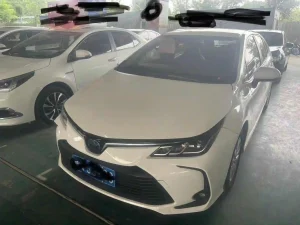Owning a Chinese EV starts with proper planning — How to choose the right model, understand its legal status and import regulations as well buy one. The production of electric vehicles in China has increased very rapidly with 6 million plus units expected to be sold last year and more than 60% share of the global market. Various models from popular brands such as BYD, NIO and XPeng will cost comparably less whilst offering advanced technology combined with fast performance. The BYD Dolphin costs somewhere around $15,000 and can travel about 400 km per charge as an attractive option for more cost‑conscious customers.
Step 1: Identify which model is right for you. Battery capacity, range, charging speed and available features are the main considerations. Chinese EVs typically come with a lithium-ion battery in 40- to 100-kilowatt-hour capacity, providing an estimated range of about 300 kilometers t0 almost twice this figure (600 km). As an example, the mid-size SUV NIO ES6 comes with a 100 kWh battery offering up to 580 km range and offers autonomous driving capabilities as well AI-powered smart cabins.
After you have selected a model, make every effort to research your countries regulations and requirements for bringing in vehicles. Most states also have rules about battery safety, emissions and vehicle specs for their registration requirements. For instance, strict safety and environmental regulations in the European Union mandates that any EV or PHEV to conform with UNECE R100 battery certification. These standards must be met by the EV to simply escape customs clearance issue. In addition, import incentives for EVs are provided by such countries as tax relief or direct subsidies of 10-30%, which leads to a reduction in the total cost.
Then, find a reputable exporter or dealer. Join Motorsport Network to gain access to an enhanced buying experience that includes second-hand Chinese EVs from verified sellers on platforms like Alibaba and Autocango. Remember to validate the future exporters against their website — is there even a rating or review? The documentation which an exporter handle are the bill of sale, Inspection Reports and handles Export Clearance as well. It is essential to have a well-written and pre-approved POA, or the same could be said for Pre-shipment inspections so that words match conditions as described in ad listing with an approximate cost of N200-N500.

Shipping logistics are a big part of the piecing together purchases. Most EVs are transferred via container or Roll-on/Roll-off (RoRo) boats, however compartment shipping accommodates extra insurance. Depending on the distance as well as means, delivery costs from $1 000 to$3 000 with a shipping period of time taking between Thirty and Fortyfive days. Having logistics services providers who are versed with the operational necessities of load transportation can make a huge difference towards this end.
Are you wondering what happens when it arrives here or how much i need to pay customs and import taxes for? These rates are different in every country, but usually they lay around 10-25% of the price which vehicle. And VAT and registration charges too may get included. This is applicable in such a way that total import cost reach up to 50% of the vehicle value in some countries. You should budget for these costs carefully.
Local registration and compliance: this is the final piece of what may be a very complex circumvention plan "twine". That entails ensuring, for example, that an EV conforms to regional standards—whether it-based port formats or software adjustments. This can often require extensive modification to the EV (to make it work with local charging infrastructure, such as in North America). Once through the inspections and registered, the EV is ready to go.
In short, if you want to keep up with the rising trend for high-tech cost-effective vehicles… why not venture into this vast EV pool in China via reliable exporters that are capable of taking care everything from detailed inspections to efficient logistics?